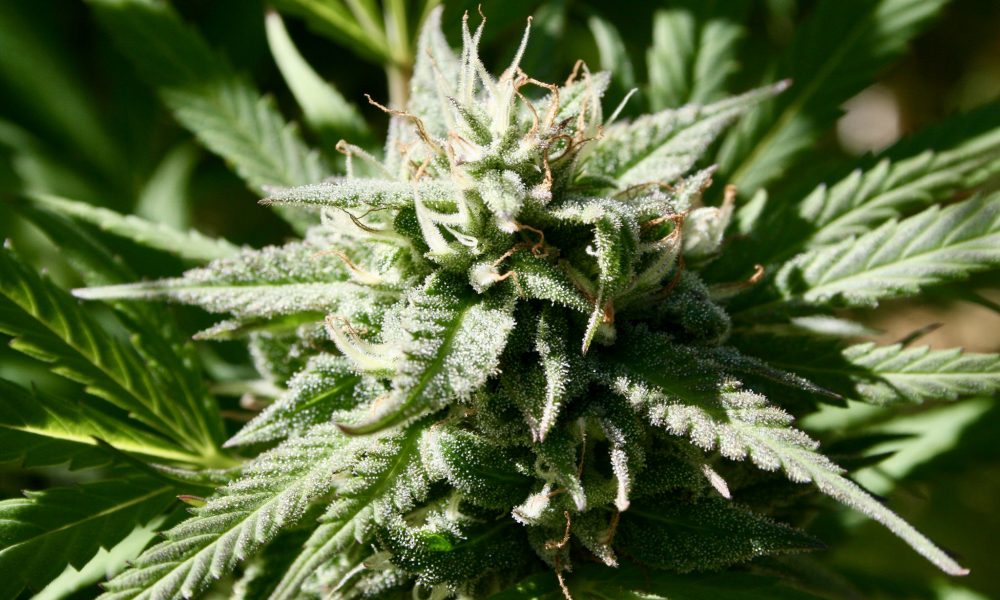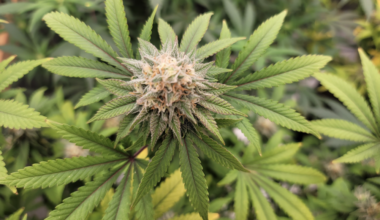A major GOP House caucus has released a “Family Policy Agenda” that expresses opposition to federal marijuana legalization and attempts to link its use to suicide and violence—but the cannabis criticism is leading to pushback within the group, with staff for two members openly telling Marijuana Moment that the lawmakers disagree with the prohibitionist rhetoric.
The 156-member Republican Study Committee (RSC) unveiled the agenda late last week. It details 10 ideological principles and more than 80 legislative recommendations “to guide conservatives’ work to restore the American family.”
Under a section titled “Protecting Children from Dangers of Drugs,” the committee, which counts nearly three out of four House Republican lawmakers as members, says that cannabis remains federally prohibited, “but that has not stopped more and more states and localities from legalizing it under their own laws.”
“This has led to an explosion of marijuana use among children, which is having a hugely negative impact on their health,” the report says, misconstruing data that shows underage cannabis use declining or remaining stable following the implementation of legalization. “Congress should not legalize marijuana, while also taking steps to constrain this new industry’s ability to harm children.”
“At the very least, Congress should direct the [Centers for Disease Control and Prevention] to gather data and conduct studies on the health impacts of THC use during childhood and early adolescence with a special focus on deaths by suicide and those involved in violent crime to provide Congress and the public with further information about these dangers,” the agenda continues.
It further calls for the passage of a bill that would increase criminal penalties for manufacturing or selling Schedule I drugs like marijuana in the form of candy or beverages if there is “reasonable cause to believe” they will be sold to minors.
More than one-forth of the Senate is cosponsoring broader legislation filed in August that contains that punitive language on cannabis edibles, and RSC Chairman Jim Banks (R-IN) introduced a companion bill titled the “Protecting Kids from Candy-Flavored Drugs Act” last month with 30 GOP cosponsors.
“The Biden presidency has failed America’s families,” Banks said in a press release about the overall agenda. “Over the past two years, families have lost savings, flexibility, and control over childrearing to increasingly hostile and far left ideologues. Republicans need to position themselves as the party of families.”
RSC released a policy agenda that empowers parents, protects children, and builds an economy that puts families first.
Read more from @PhilipWegmann via @RealClearNews here: https://t.co/cme68vARbd pic.twitter.com/cCyXQfDDXr
— RSC (@RepublicanStudy) September 30, 2022
“Next Congress we need to focus on reforming the tax code to create more families, passing pro-life legislation, protecting parents’ pocketbooks, and giving them back control over their kids’ education,” he said, previewing a push that could include anti-cannabis legislation should Republicans take back control of Congress in next month’s midterm elections.
“If Republicans can contrast our efforts with Democrats’ record of intrusion and control then I think parents will play a pivotal role in 2022 and 2024,” he said.
Of the more than 150 House members who are part of the committee, two voted for a comprehensive, Democratic-led marijuana legalization bill in April: Reps. Tom McClintock (R-CA) and Brian Mast (R-FL), a co-chair of the Congressional Cannabis Caucus.
“There’s never going to be 100 percent agreement on any issue, in any party,” a Mast spokesperson told Marijuana Moment on Monday. “Rep. Mast shares the Committee’s desire to protect kids from dangerous substances, but believes that, ultimately, marijuana legalization is an issue that should be left up to the states.”
“He would like to see Congress focus its efforts on national security issues including securing the border and keeping drugs—especially those laced with fentanyl and other deadly substances—from making their way into our communities,” the Mast staffer said.
A spokesperson for McClintock simply said her boss “disagrees with that provision” of the RSC agenda.
Meanwhile, the House also passed bipartisan legislation in July that’s meant to streamline research into the risks and benefits of cannabis. But while Senate leadership tried to bring it to the floor under unanimous consent last week, at least one GOP member raised an objection to the expedited process, delaying its consideration until after the midterm elections.
Reps. Earl Blumenauer (D-OR) and Andy Harris (R-MD) sponsored the measure in the House, which is substantively identical to a separate Senate bill from Sens. Dianne Feinstein (D-CA), Brian Schatz (D-HI) and Chuck Grassley (R-IA) that previously cleared that chamber.
Researchers and other advocates associated with the prohibitionist organization Smart Approaches To Marijuana (SAM) sent a letter to Senate Majority Leader Chuck Schumer (D-NY) last week, imploring him to bring the research measure to a vote.
Legislation to loosen marijuana research barriers might stand a chance of passage even if Republicans reclaim the majority in either or both chambers, but the new RSC agenda signals that enacting broader reform may face significant resistance in the next Congress if Democrats lose their majorities.
As it stands, Senate leadership is working to finalize a package of incremental cannabis reforms that’s expected to contain bipartisan proposals such as protecting banks that work with state-legal marijuana businesses, facilitate cannabis-related expungements and promote research into the plant.
Rep. Ed Perlmutter (D-CO), the House sponsor of the standalone marijuana banking bill, said he recently spoke with Schumer at an event at the White House and discussed the need to enact the bipartisan reform this session.
Meanwhile, the Drug Enforcement Administration (DEA) has taken steps in recent years to approve new cultivators of marijuana to be used in studies, and the National Institute on Drug Abuse (NIDA) recently published a solicitation for applications from those authorized growers as it looks for new contractors to supply the agency with cannabis for research purposes.
Large-scale infrastructure legislation that was signed by Biden last November contains provisions aimed at allowing researchers to study the actual marijuana that consumers are purchasing from state-legal businesses instead of having to use only government-grown cannabis.
NIDA’s Volkow told Marijuana Moment last year that scientists have been unnecessarily limited in the source of cannabis they’re permitted to study—and it makes sense to enact a policy change that expands their access to products available in state-legal markets.
Separately, a bipartisan duo of congressional lawmakers filed a bill in July to set a federal marijuana research agenda and create a designation for universities to carry out cannabis studies with federal grant money.
The legislation from Reps. Scott Peters (D-CA) and Dave Joyce (R-OH) is titled the “Developing and Nationalizing Key Cannabis Research Act.” The bill text doesn’t abbreviate the title, so it’s not clear if the intent was to play into cannabis consumer nomenclature with the introduction of the DANK Cannabis Research Act.
Photo courtesy of Brian Shamblen.
Medical Disclaimer:
The information provided in these blog posts is intended for general informational and educational purposes only. It is not a substitute for professional medical advice, diagnosis, or treatment. Always seek the advice of your physician or other qualified healthcare provider with any questions you may have regarding a medical condition. The use of any information provided in these blog posts is solely at your own risk. The authors and the website do not recommend or endorse any specific products, treatments, or procedures mentioned. Reliance on any information in these blog posts is solely at your own discretion.






